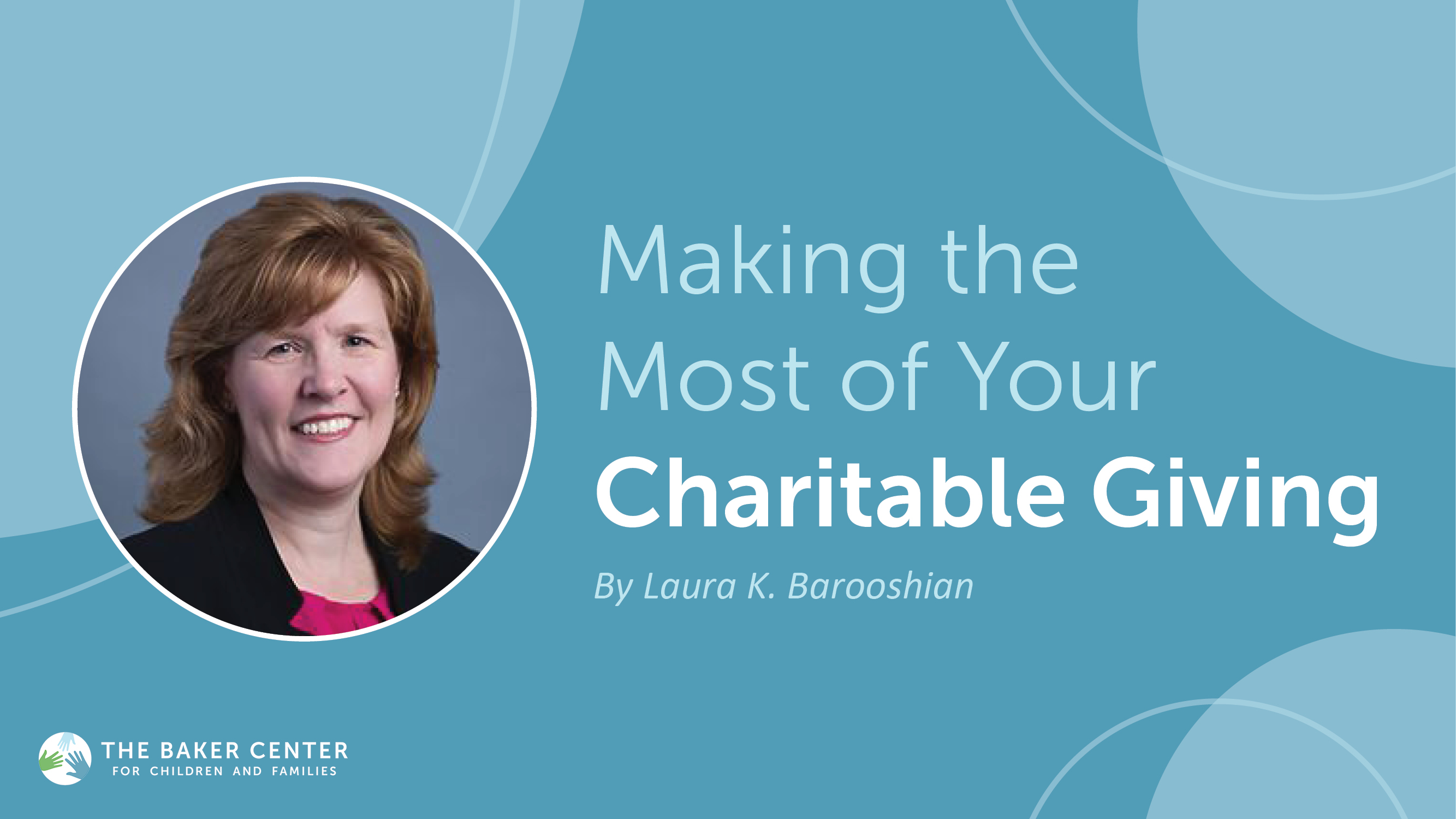
It is that time of year again to think about your year-end charitable giving. One change to note this year is that Massachusetts residents will be allowed a charitable donation deduction. Deductions will be prorated for part year residents and non-residents who earn income in Massachusetts.
For federal tax purposes individual taxpayers can claim a deduction for up to half of their Adjusted Gross Income (AGI) when they make a cash donation to a public charity. A deduction is allowed for up to 30% of AGI when they donate long-term, appreciated, publicly traded stock to a public charity.
One other way to give is to make a Qualified Charitable Distribution (QCD) from an IRA. Individuals age 70 ½ can make a distribution from their IRA directly to a public charity of up to $100,000 annually. The distribution is not considered taxable income. Making a QCD is a tax efficient way to give while avoiding taxable income for both Federal and Massachusetts, reduces the balance of your account and therefore, reduces future RMDs, and provides immediate support to those in need.
Finally, substantiating a charitable donation deduction is required by the IRS in order to claim the deduction. You can substantiate cash donations of less than $250 with a canceled check, a receipt from the charity or other reliable written record that shows the name of the charity and the date and amount of your contribution. Separate contributions of less than $250 to a single charity aren’t combined when determining whether you exceeded the $250 threshold. So, for example, if you donate $200 a month to a charitable organization, you can substantiate each donation with a canceled check.
Donations of $250 or more require a contemporaneous written acknowledgment from the charity describing the amount of your contribution and any goods or services you received from the charity in exchange for the donation.
You should receive an acknowledgment letter from the charity on or before the earlier of either your tax return due date, including extensions, for the tax year the contribution is made or the date you actually file your return. It’s critical to make sure you obtain all necessary acknowledgments before you file your return. When you receive an acknowledgement letter you should review it to confirm that the gift the charity received agrees with your records. If you did not receive any goods and services for the donation, be sure that this is clearly stated in the letter.
Charitable giving is important at PKF. Our PKF Gives Back initiative provides a variety of opportunities for employees to give back to the communities in which we live and work. Additionally, many at PKF serve on non-profit Boards of Directors and support various philanthropic organizations.
The author of this article Laura K. Barooshian, CPA, AEP®, CAP® is a Partner in the Private Client Group at PKF O’Connor Davies. She has over 20 years of experience providing income, estate and gift tax planning, consulting, and tax compliance services. Laura is a Chartered Advisor in Philanthropy and an Accredited Estate Planner. She is philanthropically minded and a member of the Board of Directors of The Baker Center.
For more than 100 years, The Baker Center has provided the highest quality mental health care for children and families. The Baker Center provides highly effective, evidence-based care that can be an answer for families during their most challenging and desperate times. Laura’s passion for this organization is one of many examples of how our PKF team gives back to the community.
If you would like to discuss charitable giving strategies or related topics, please contact a member of your engagement team or Laura Barooshian at (781) 937-5332 or lbarooshian@pkfod.com
